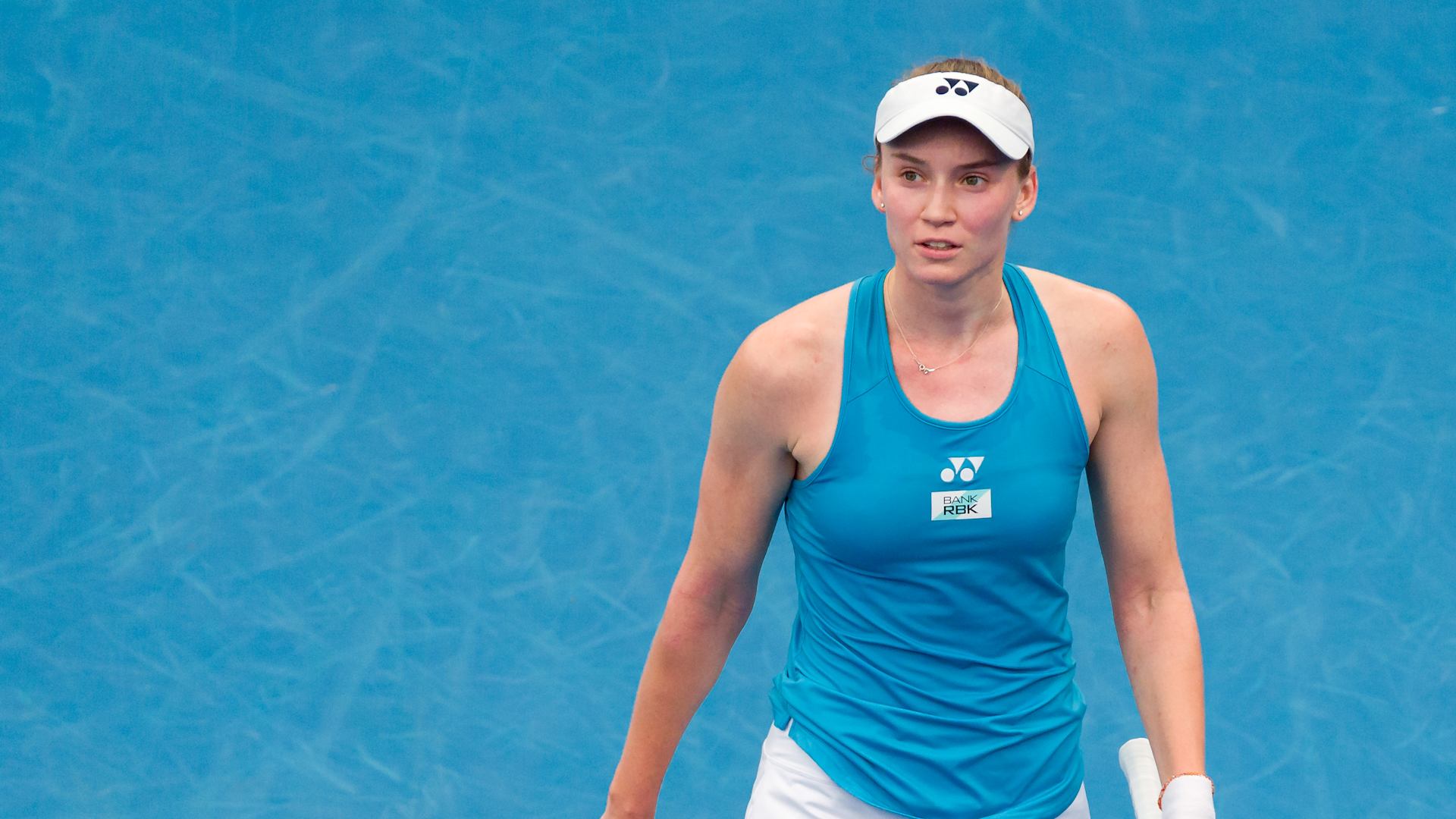Elena Rybakina and other players have high hopes for the new season, but makeovers don’t come easily in tennis

Maybe the trick is to take it one swing—of the calendar—at a time.
Elena Rybakina seemingly chose a new coach in Goran Ivanisevic, but the former Wimbledon champion hasn’t let go of her past entirely.
The opening days of a new season present every player with a clean slate. They haven’t fallen back into any bad habits, or tightened up at any important moments, or lost their confidence from any recent defeats. Everything seems possible again in the warm Australian summer.
Over the past few days, you could see that sense of possibility in Swiatek’s United Cup victories, where she seemed determined to show more positive energy than she had during her mostly subpar 2024. You could see it in the new shape that Rybakina was getting on her forehand, and the smiles that this stony competitor occasionally flashed. You could see it in Osaka’s comeback from a set down to make her first semifinal in more than two years, in Auckland. You could see it in Gauff’s and Taylor Fritz’s first-week wins in United Cup, which took the U.S. into the semifinals of that team competition.
But it also doesn’t take long for the clean slate to get some dirt on it. Even when players are winning, old patterns and habits and flaws—and the doubts that come with them—will re-emerge. Perfection is impossible in tennis, and makeovers generally aren’t completed in a single off-season.
Despite her early victories, Gauff’s two main problems—double faults and shanked forehands—haven’t disappeared in 2025. Swiatek’s energy turned fussy and negative again when she struggled to counter Katie Boulter’s backhand bombs on Sydney’s hard courts. Djokovic, after two straight-set wins in Brisbane, looked a half-step slower than normal while trying to catch up to Reilly Opelka’s serves in a straight-set loss to the American.
Then there’s Rybakina. The Kazakh has a history of starting quickly and thriving Down Under. Sshe made the Australian Open final two years ago, and last year she won the title in Brisbane. So far in 2025, she has looked as dialed in as anyone in her United Cup wins. Yet she hasn’t made a clean break from the past, either. Even as she and Ivanisevic are seeing success, she’s trying to add her old coach, Vukov, back to her team. So far that move has been blocked by the WTA, which is investigating claims of abuse by Vukov, and has provisionally banned him from the tour.
Change is hard in tennis, once a player’s basic grips and swings are set in stone. A few years ago, I asked Mouratoglou, who was coaching Gauff at the time, how many years she had to fix any problems with her strokes. He said it gets difficult after age 19. But that doesn’t mean improvement is impossible, or that tennis makeovers are a fantasy. Just ask Jasmine Paolini, who leaped from the far reaches of the Top 50 into two straight Grand Slam finals in 2024. We may see another meteoric rise like hers this season, but as Paolini herself proves, it’s impossible to know who it might be.

Leave a Reply